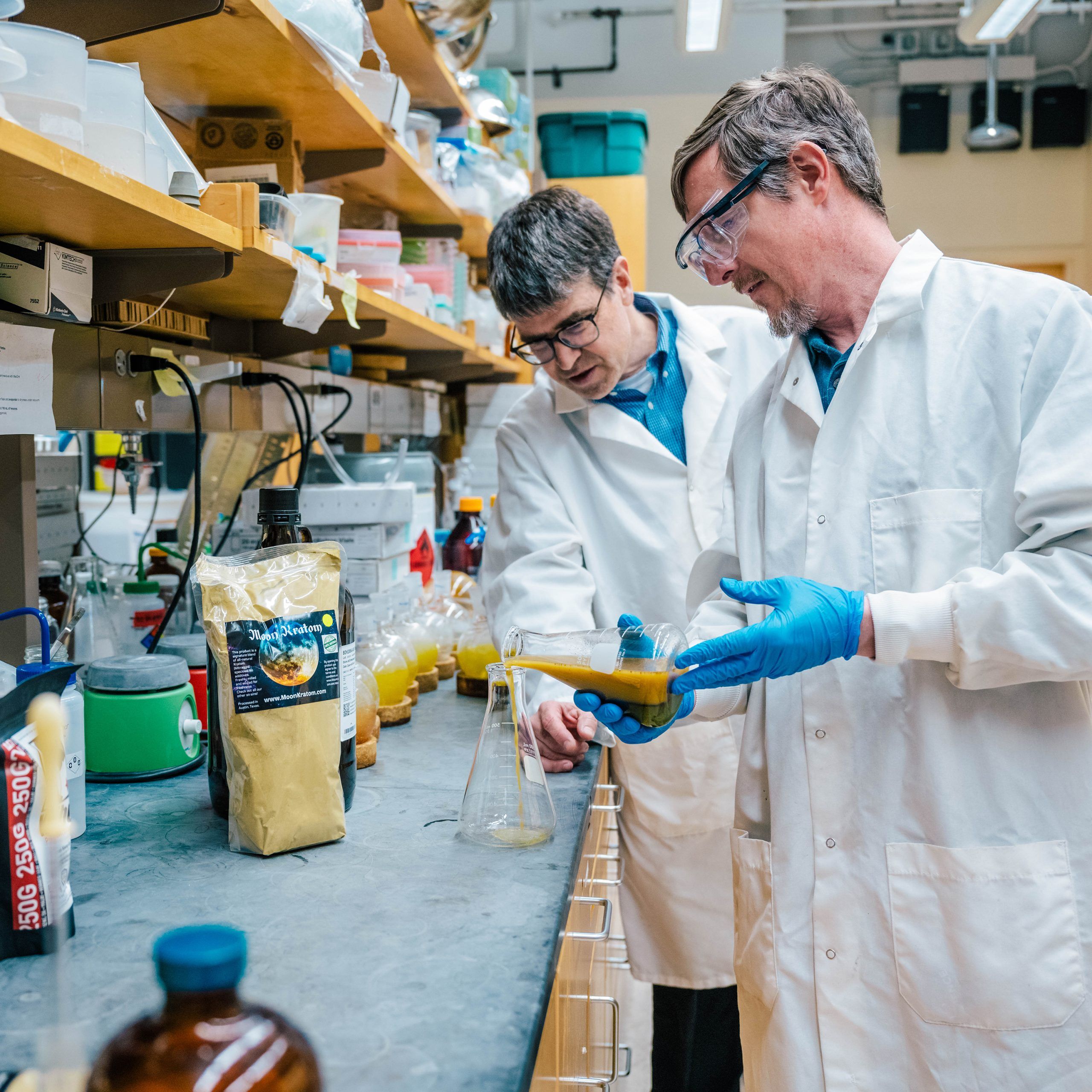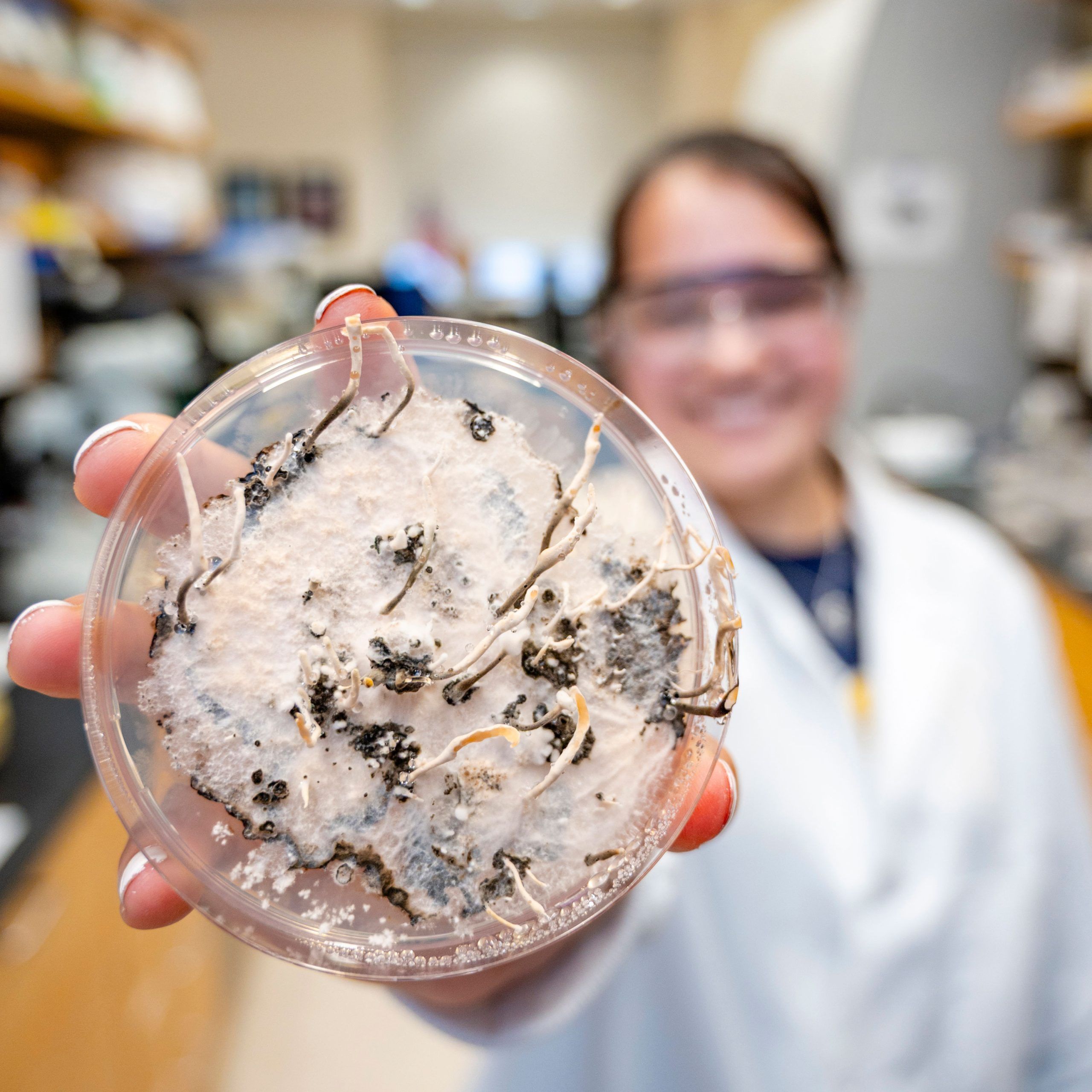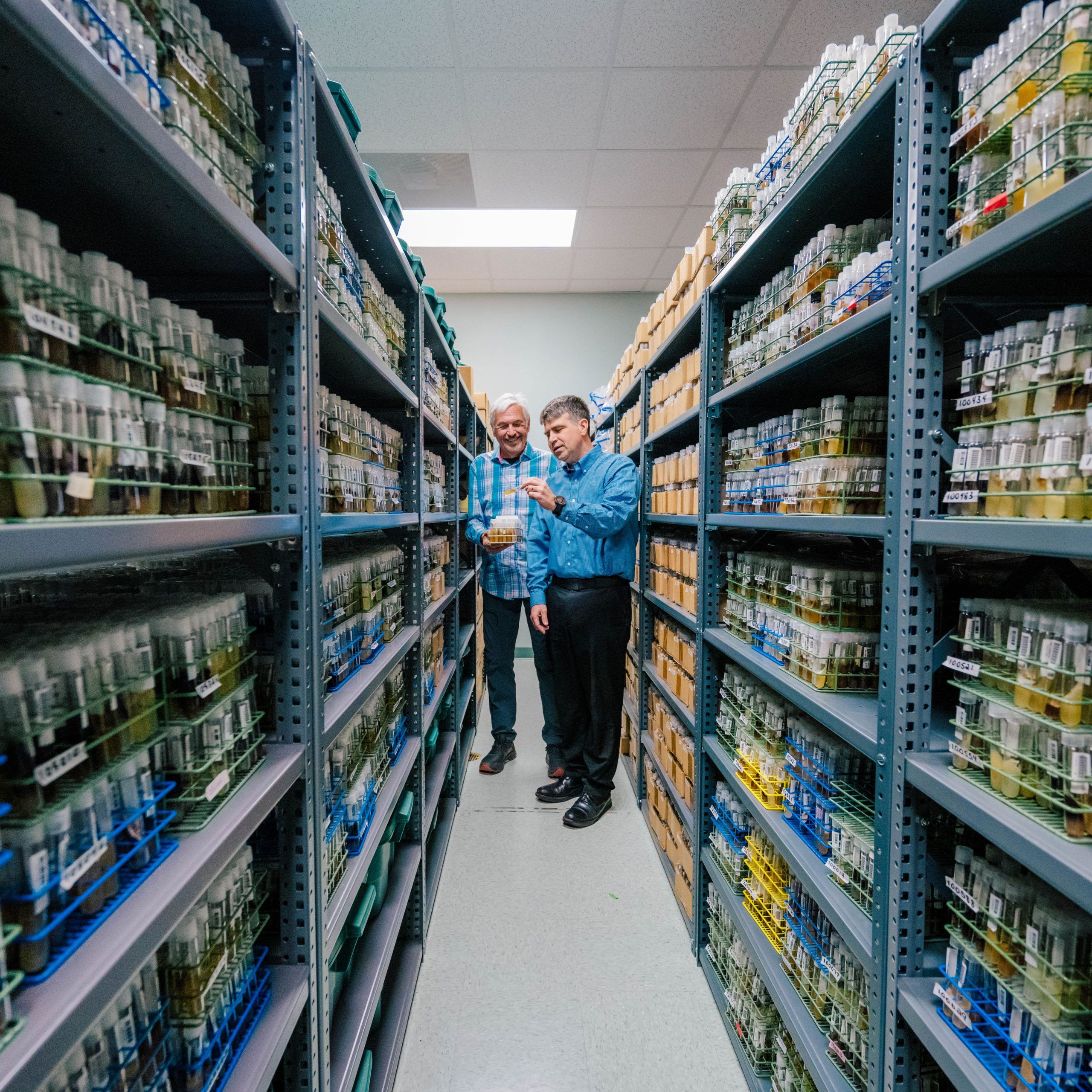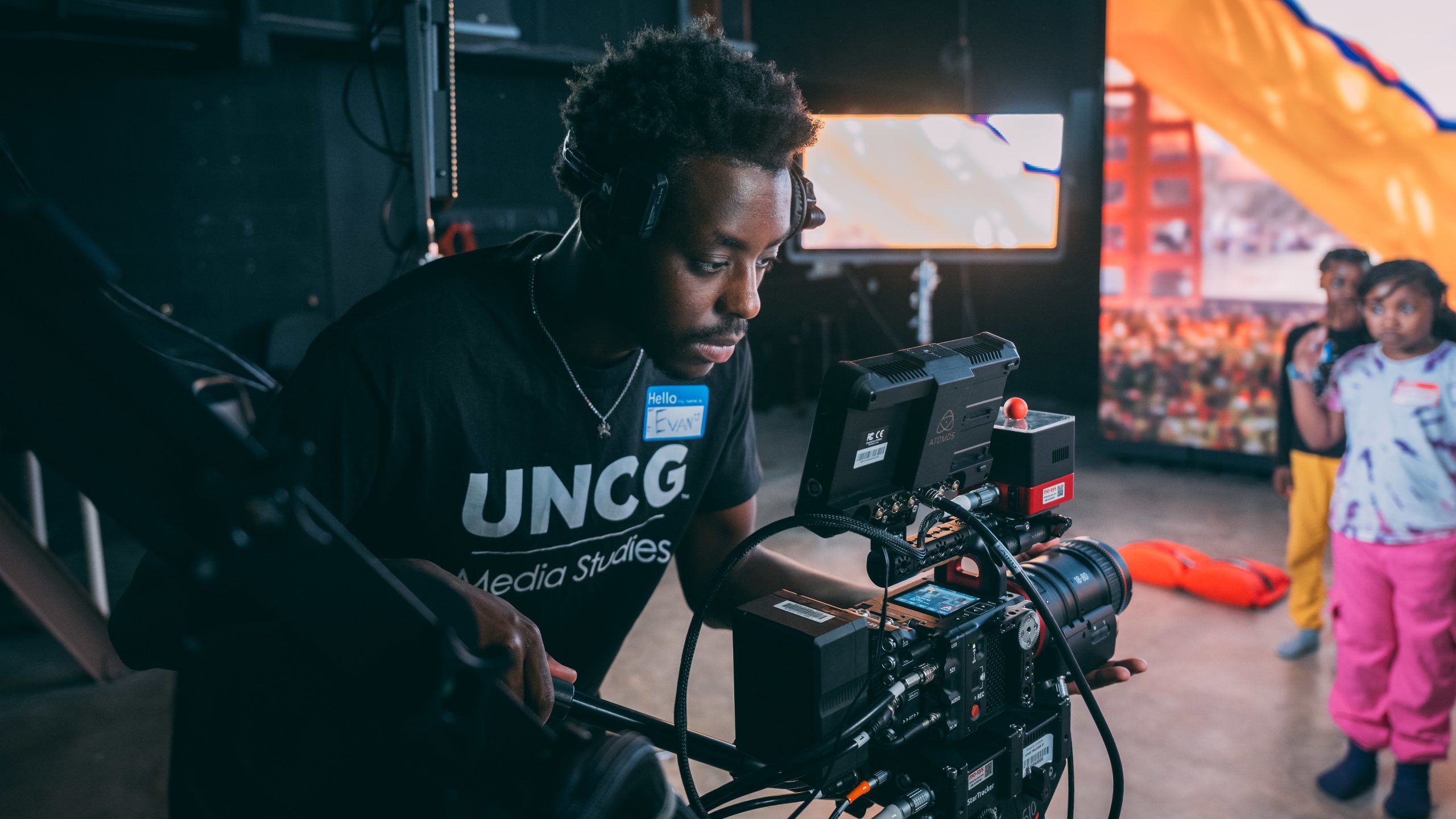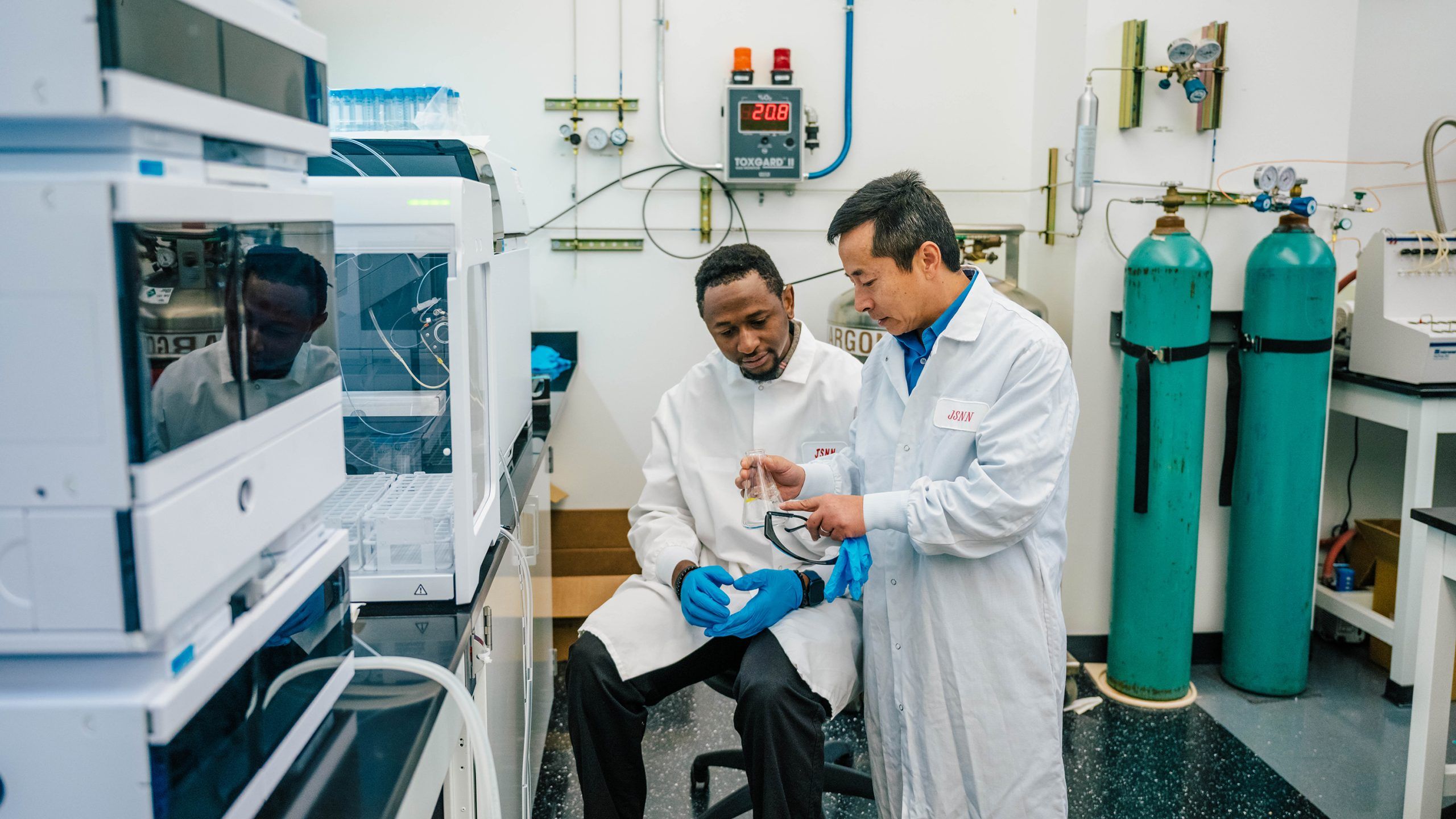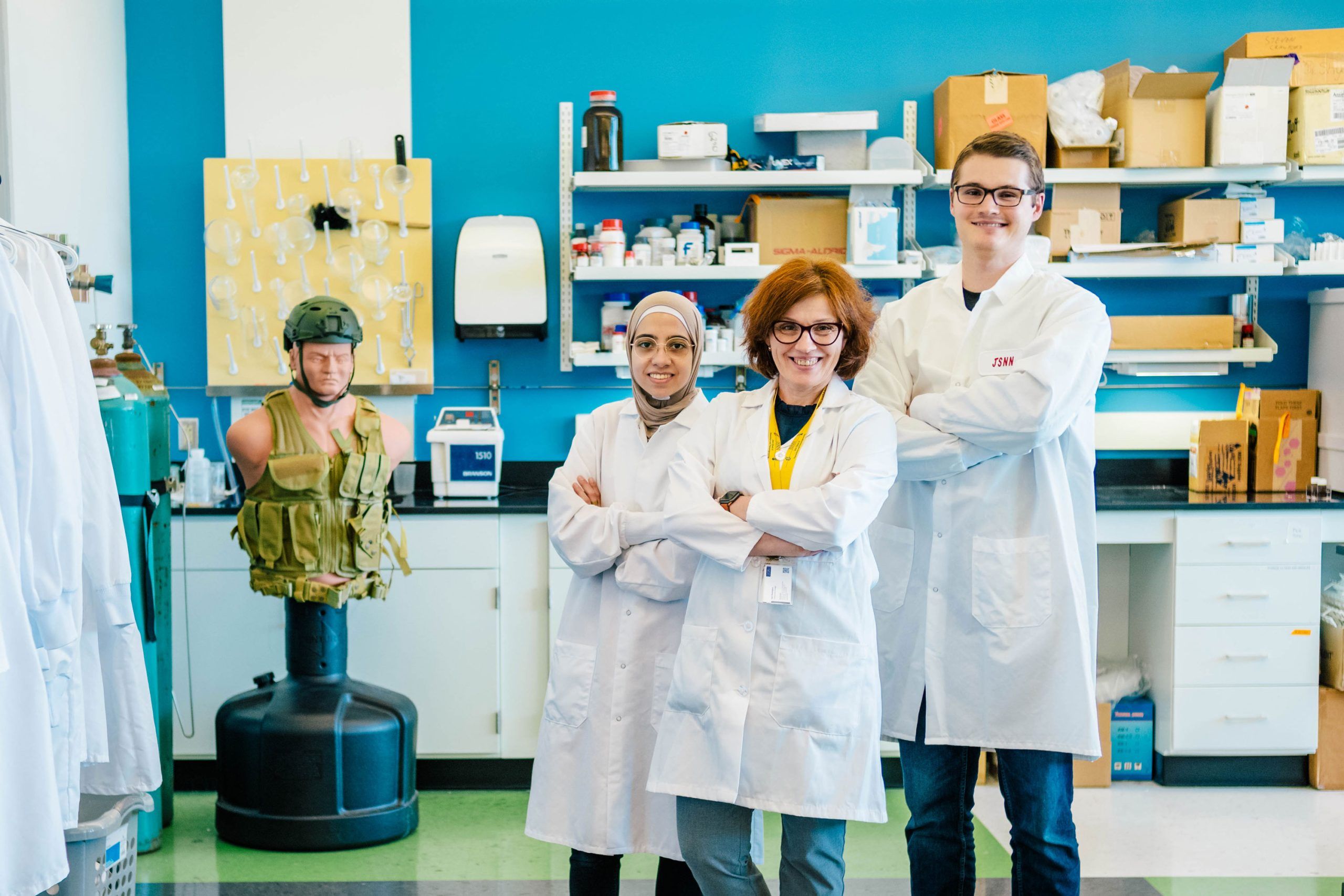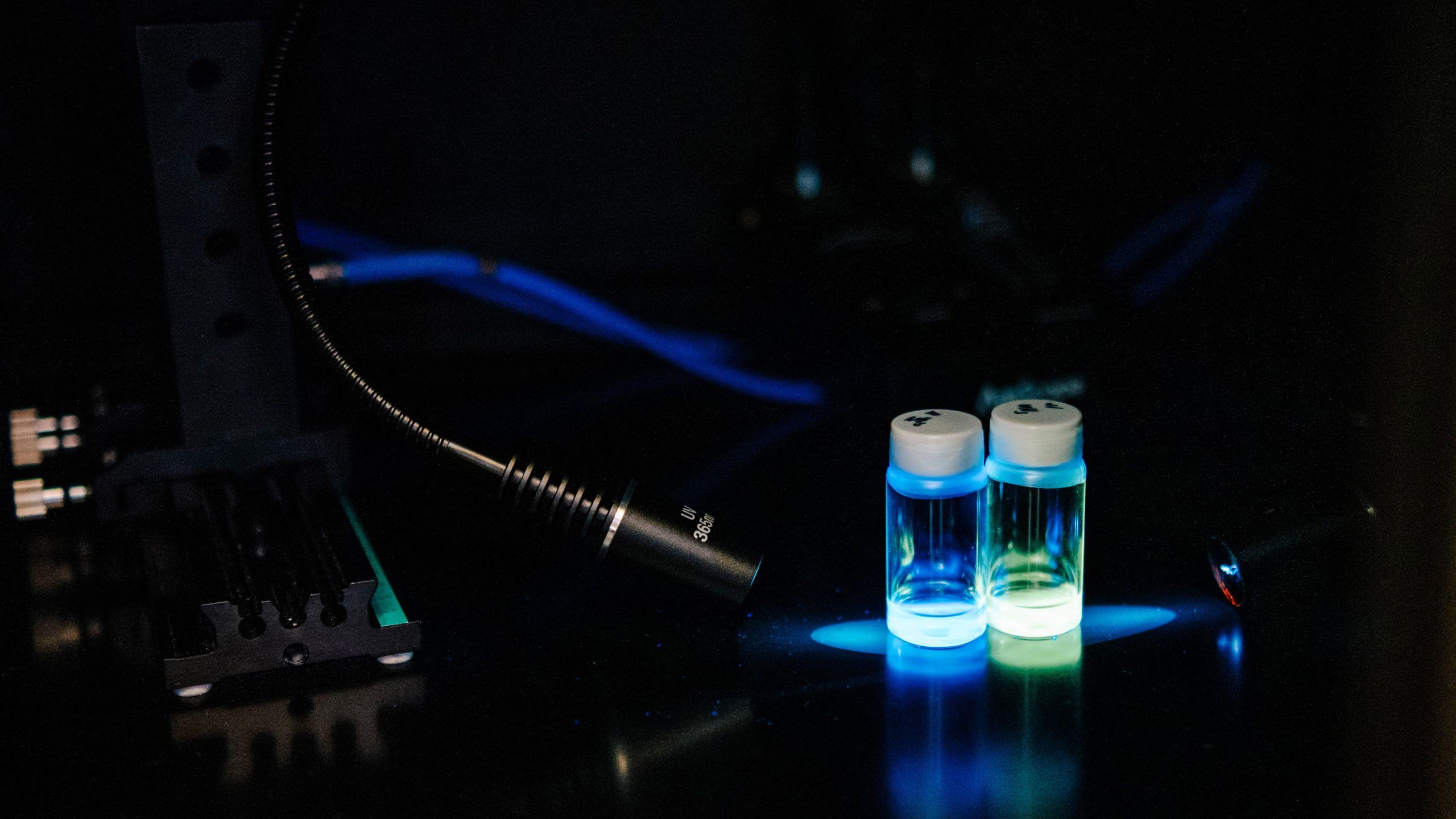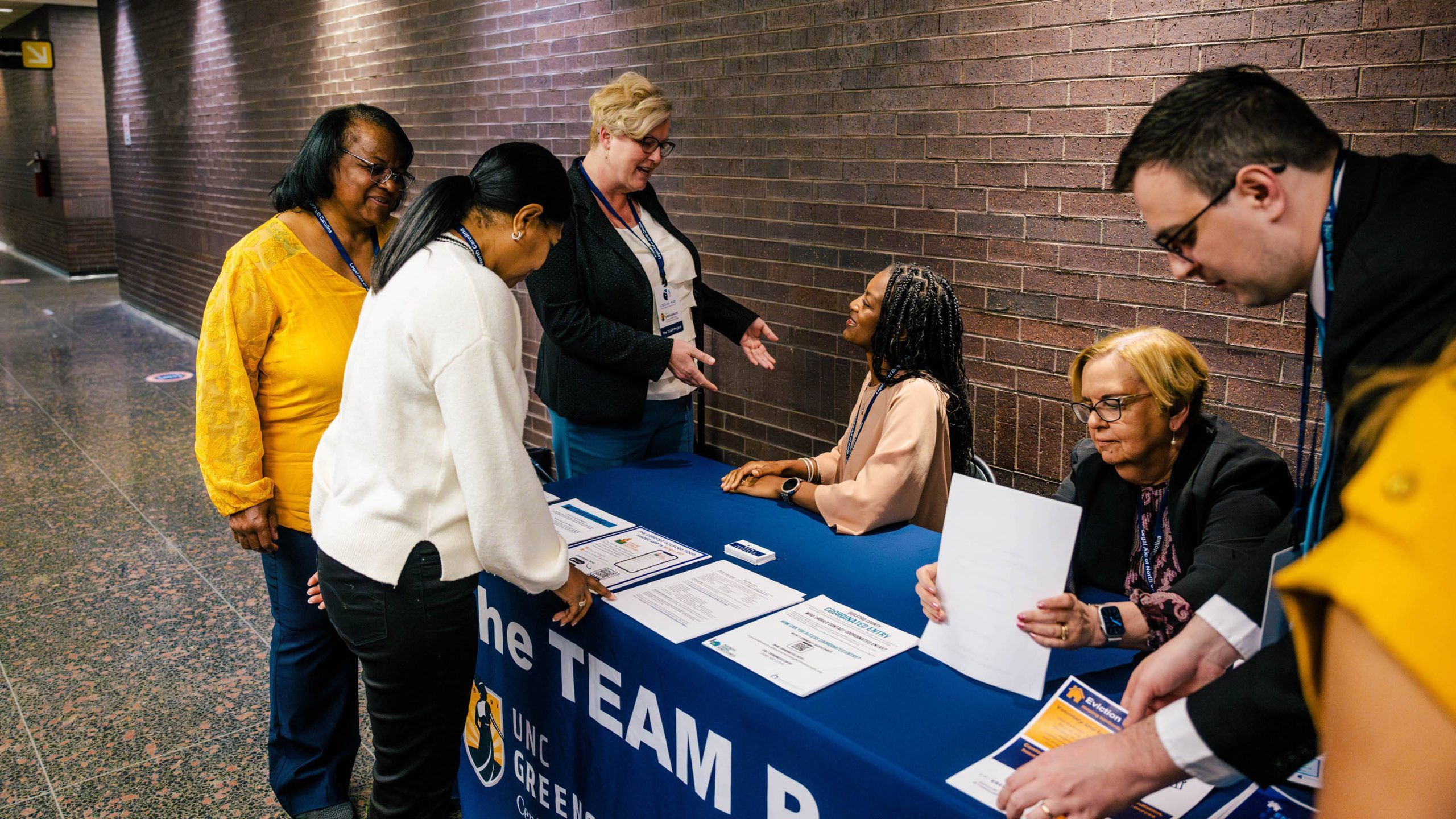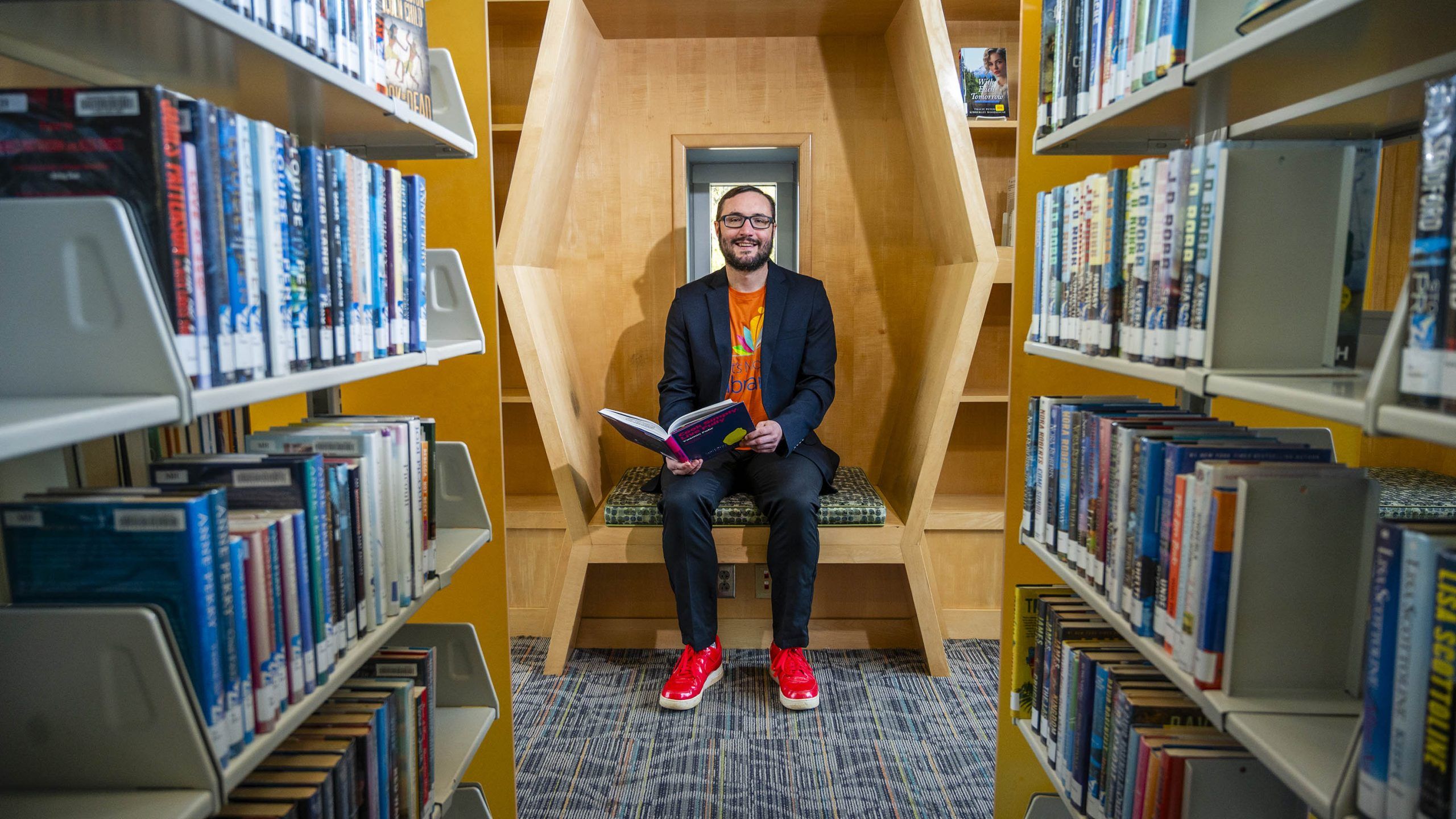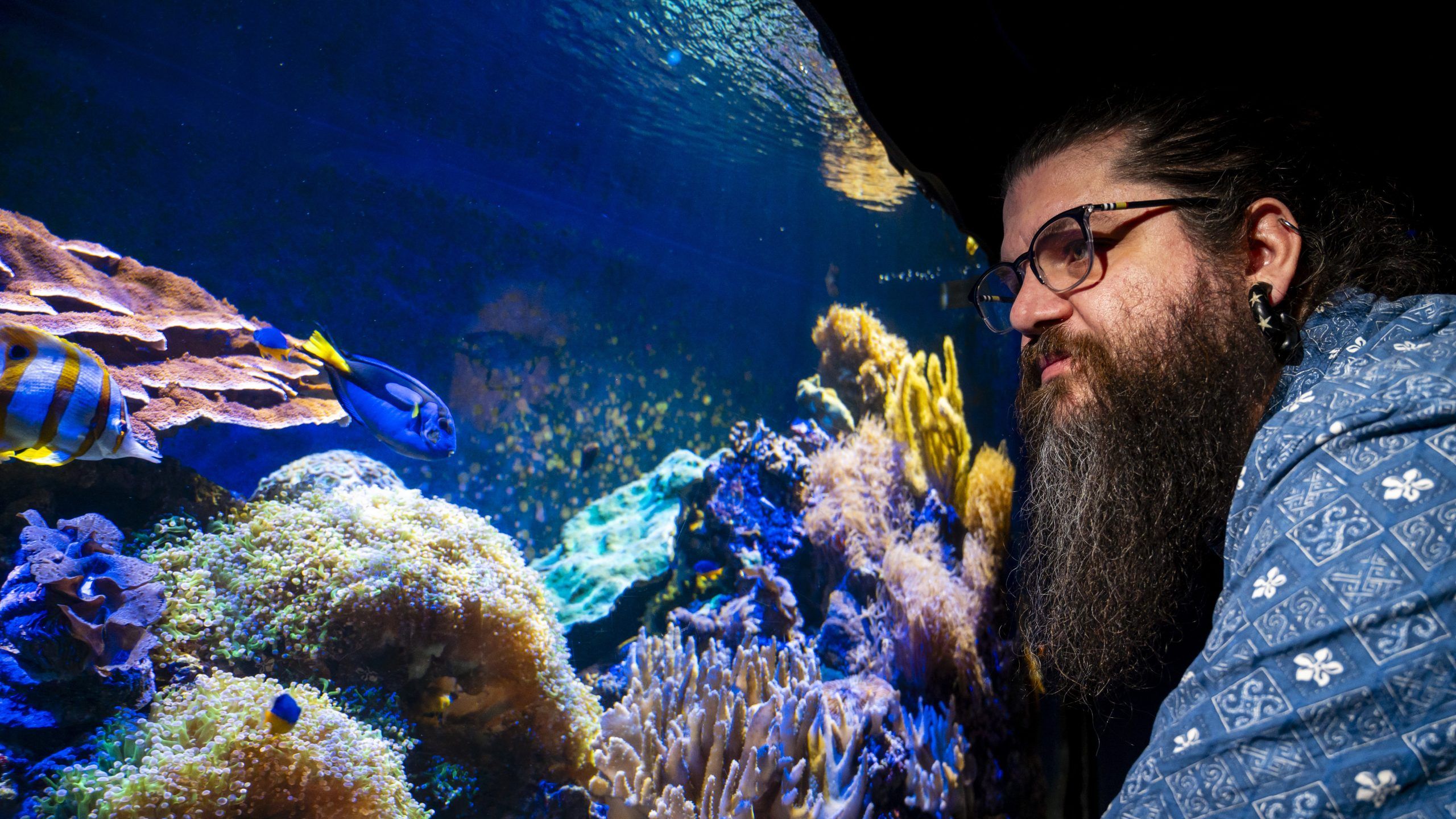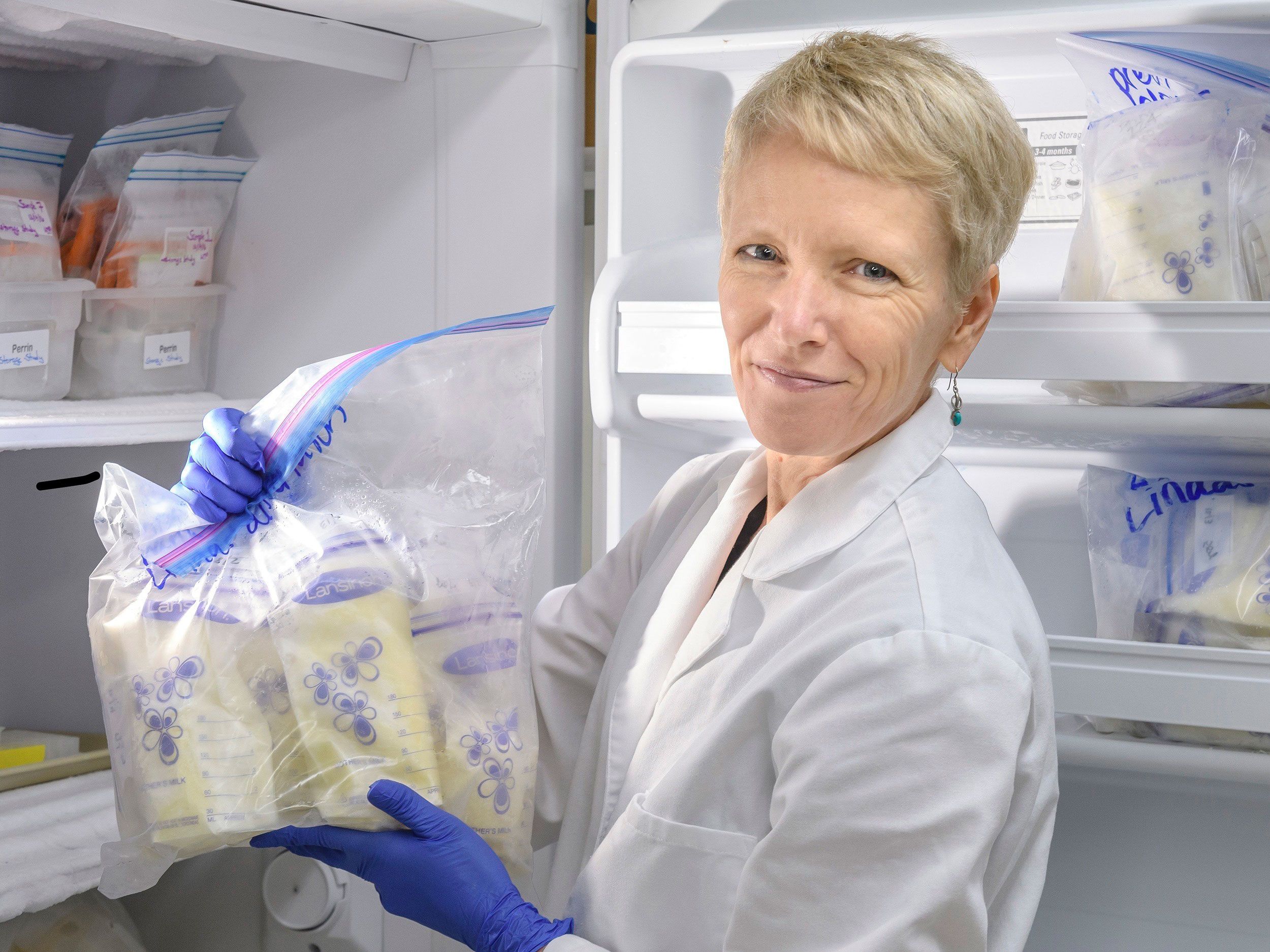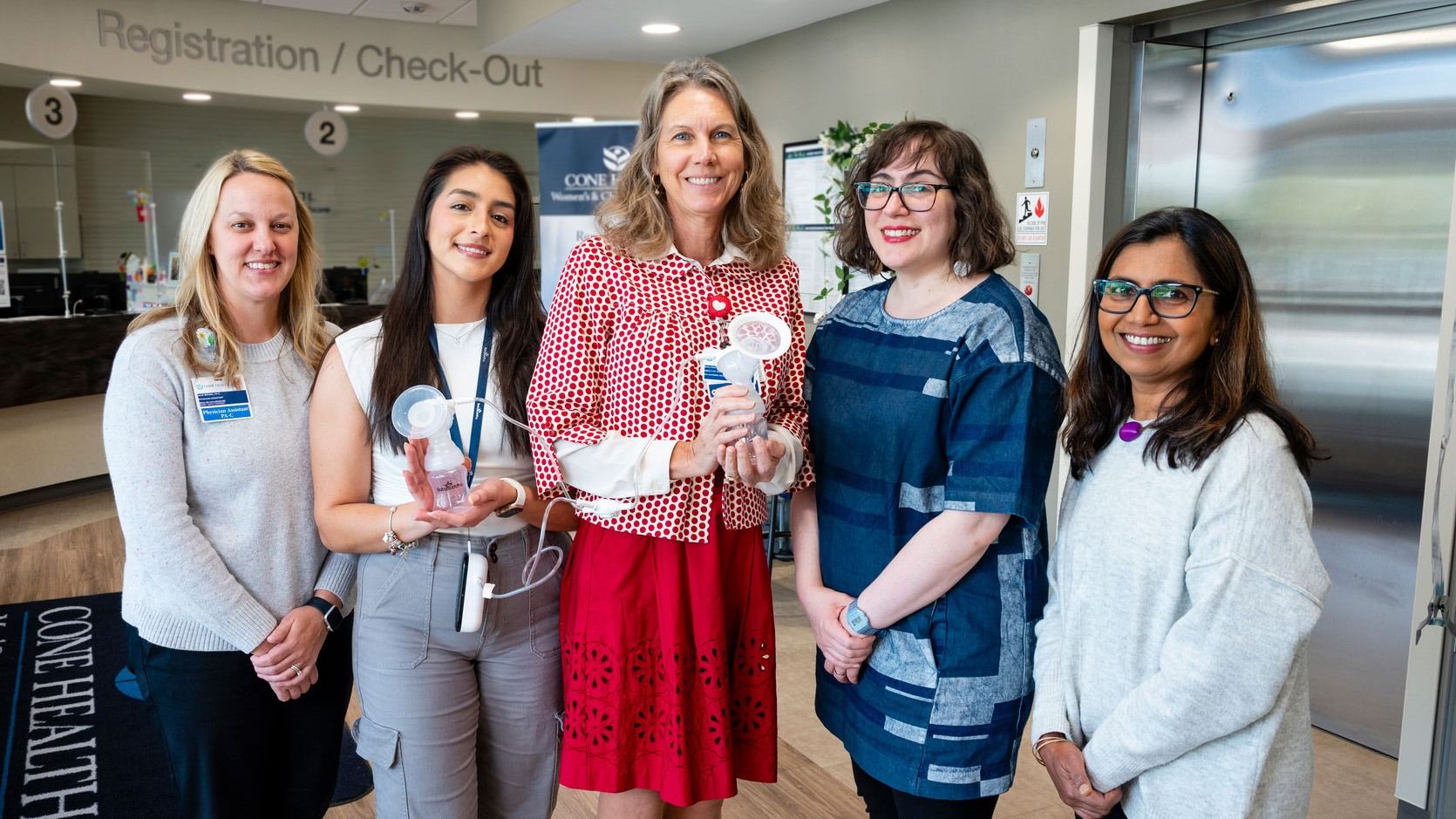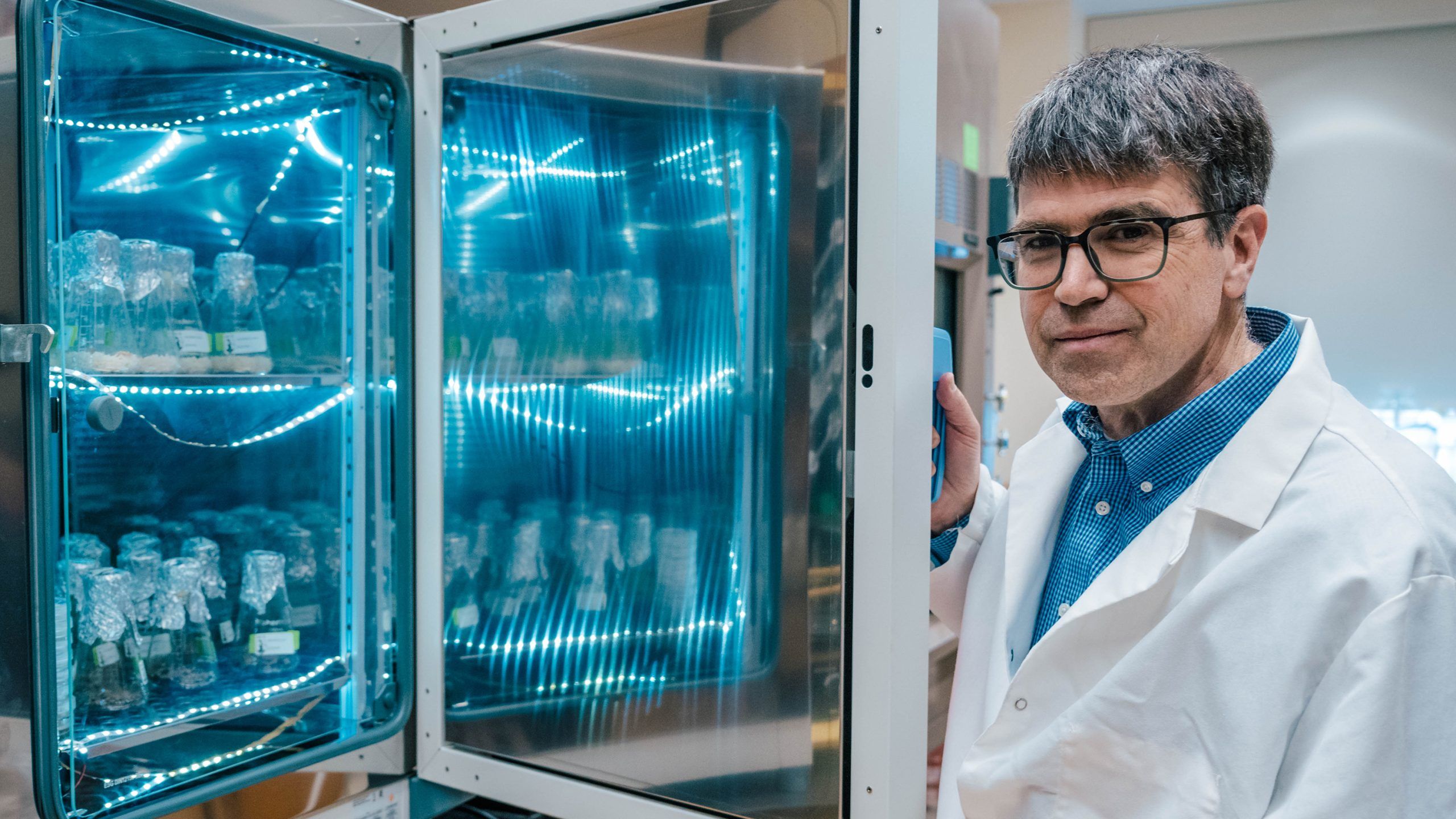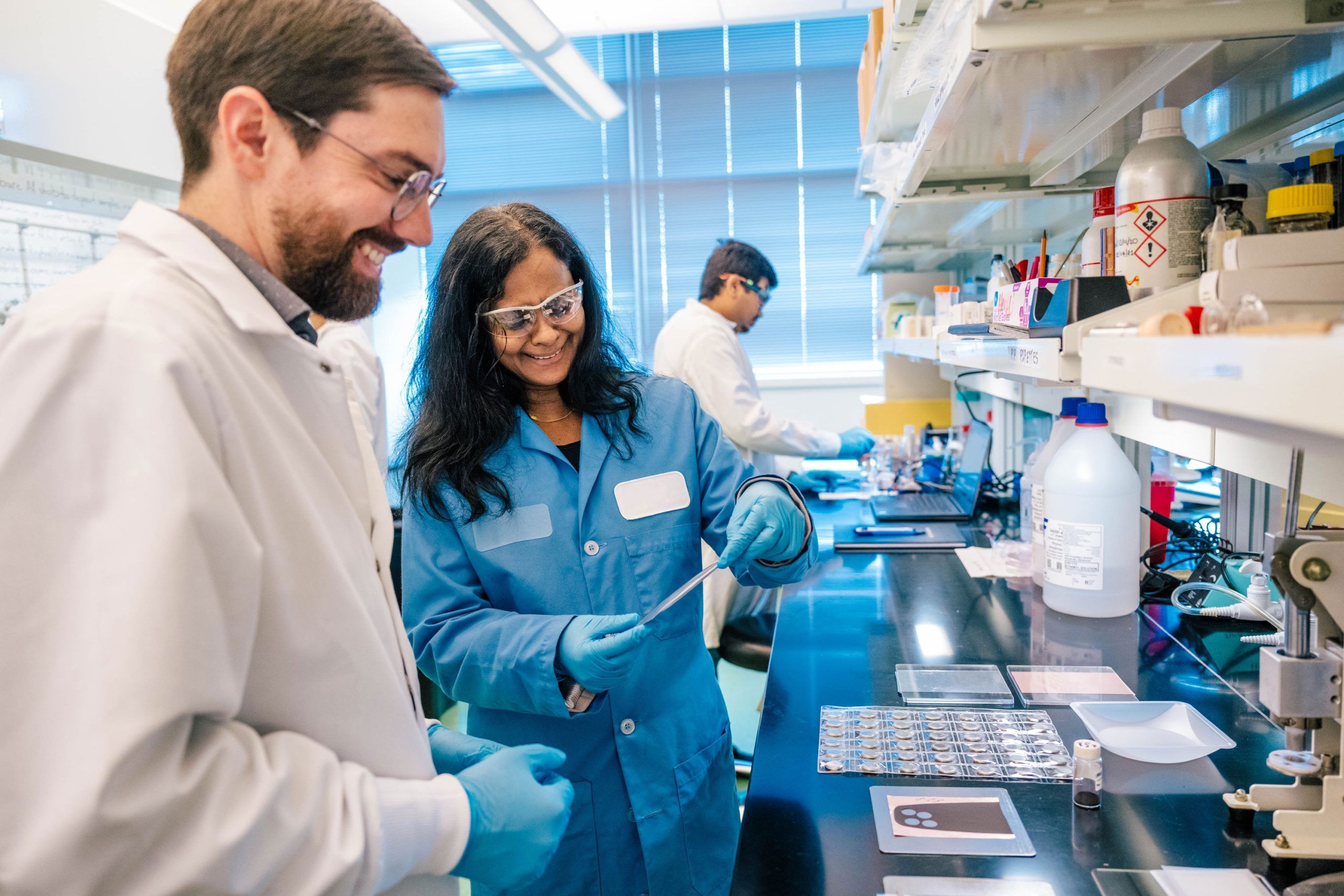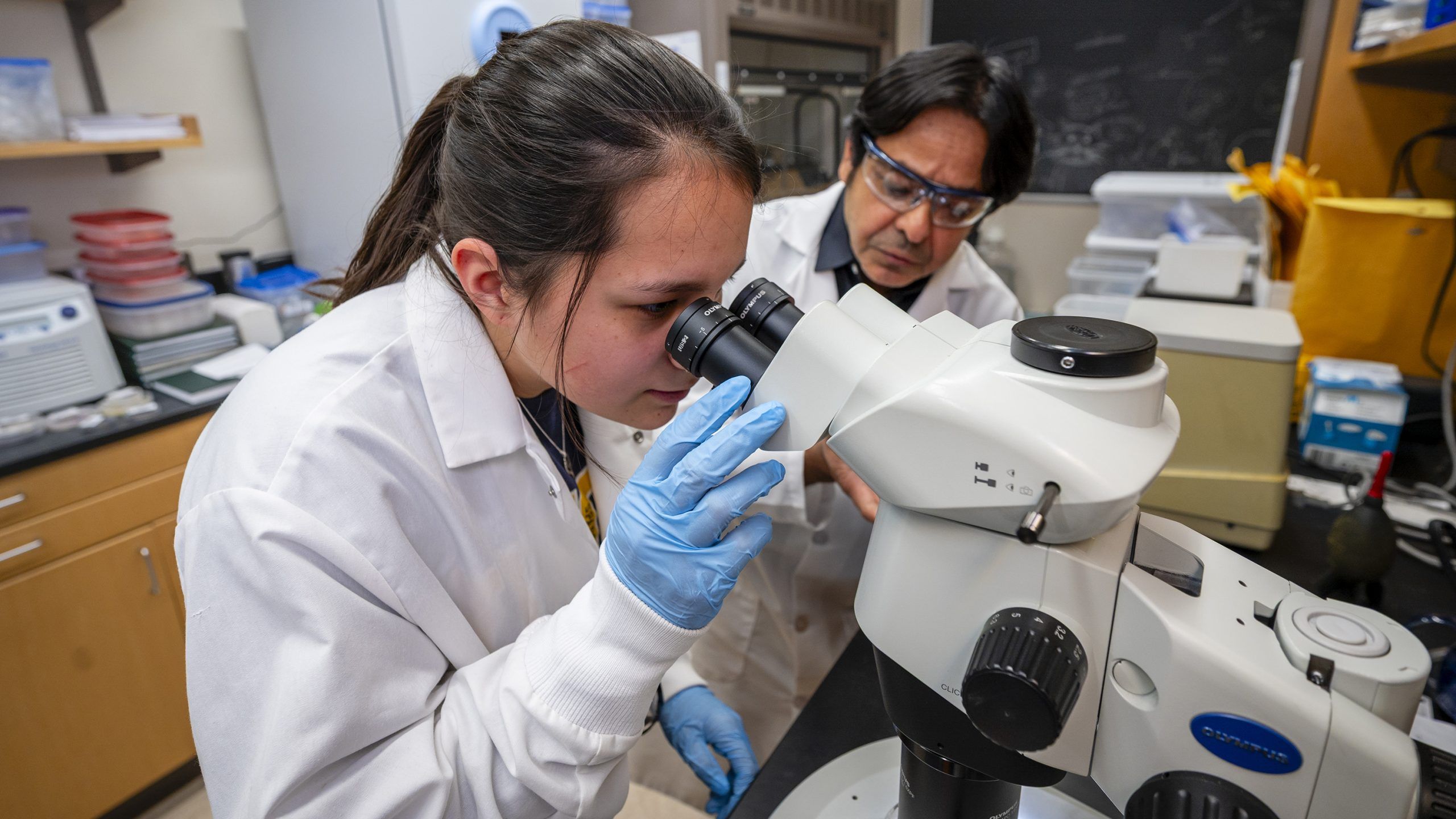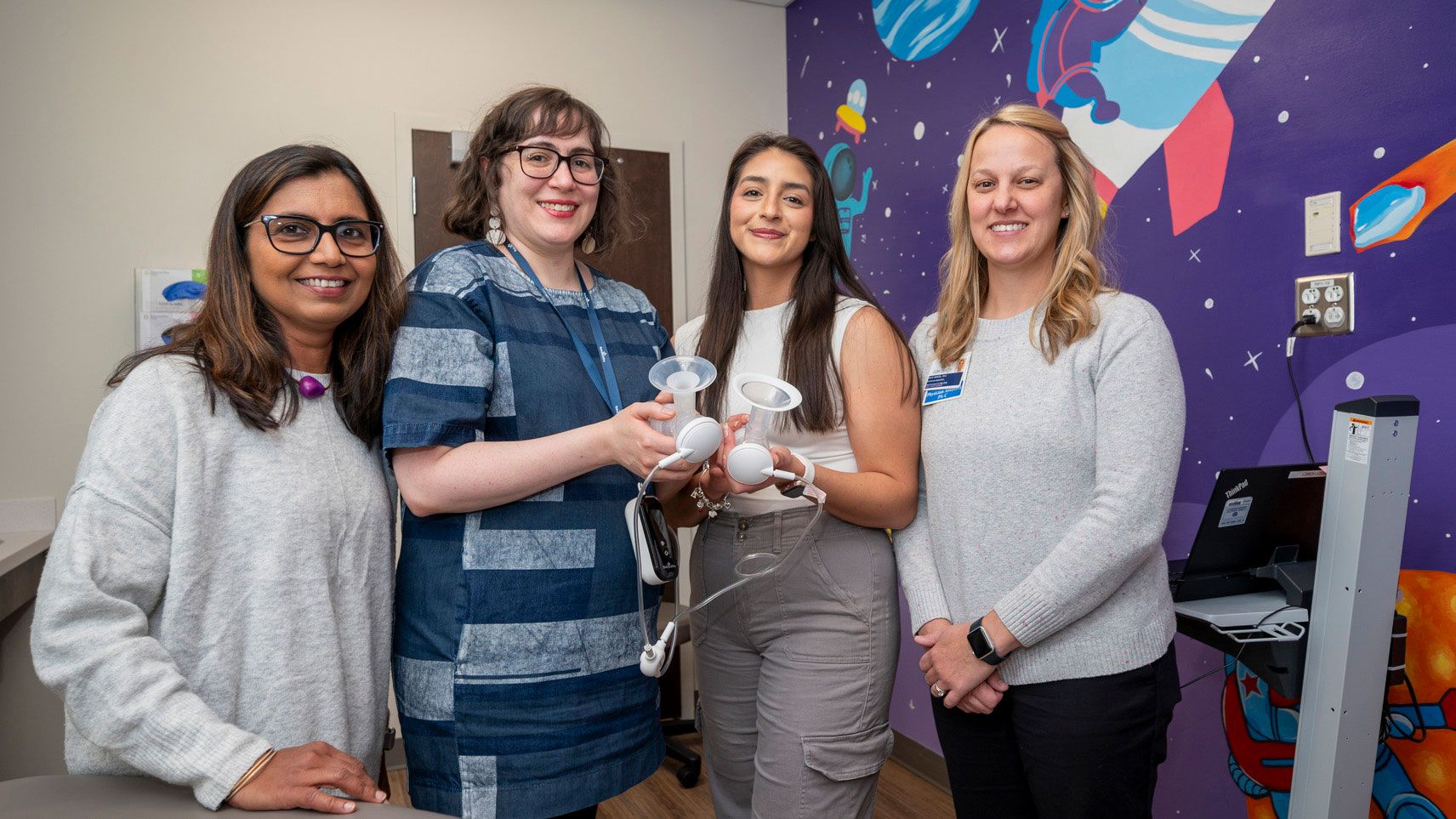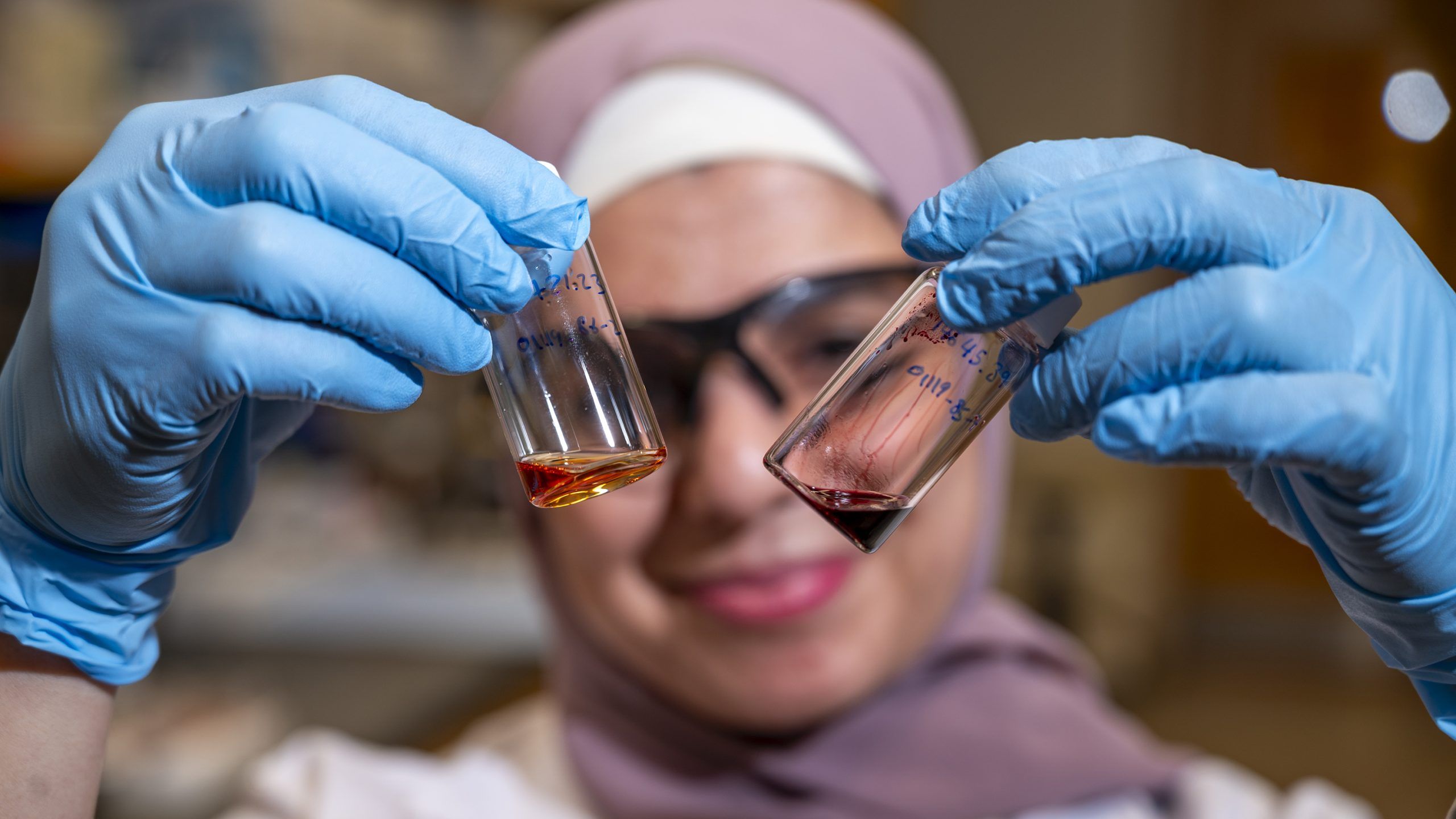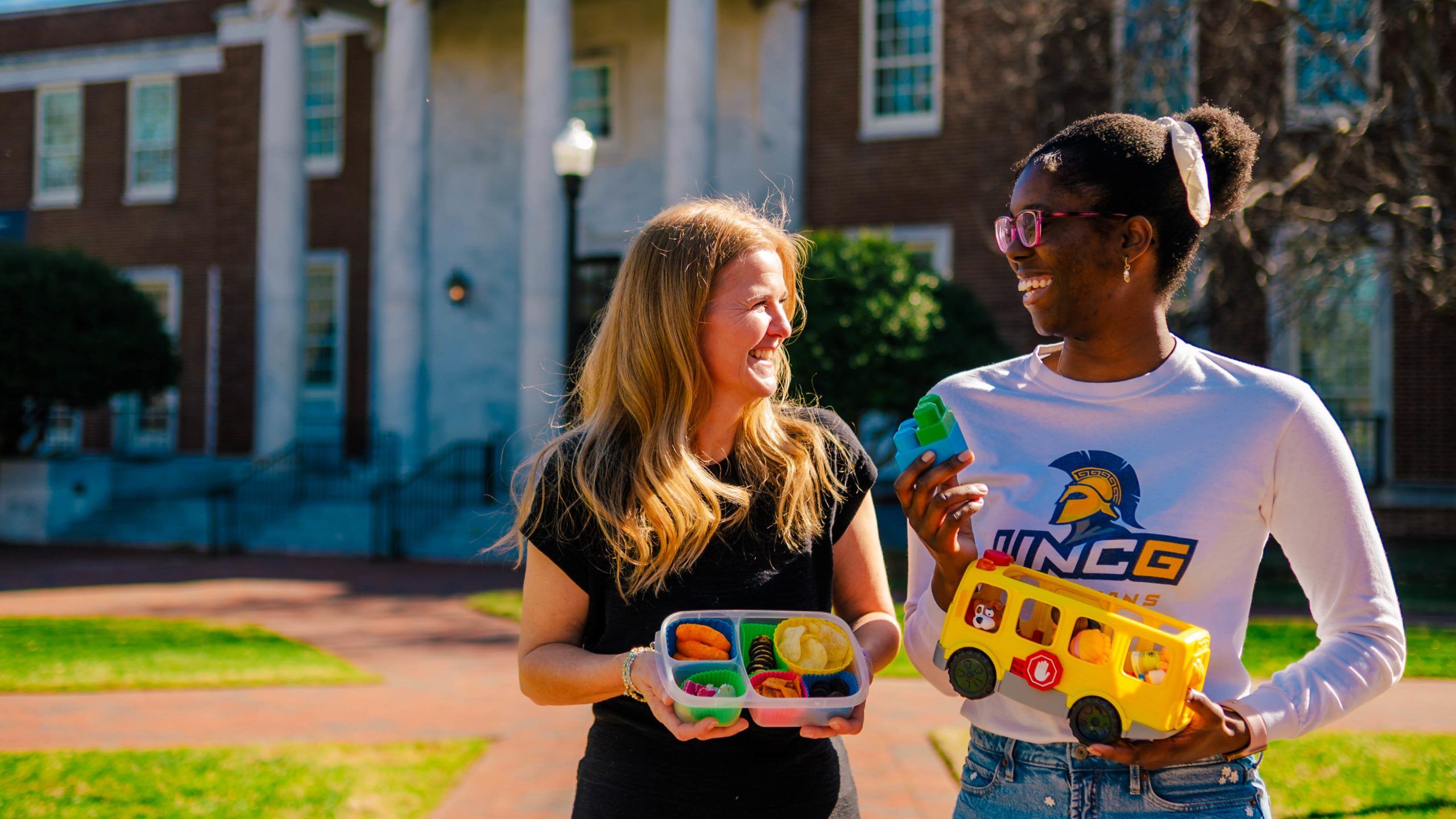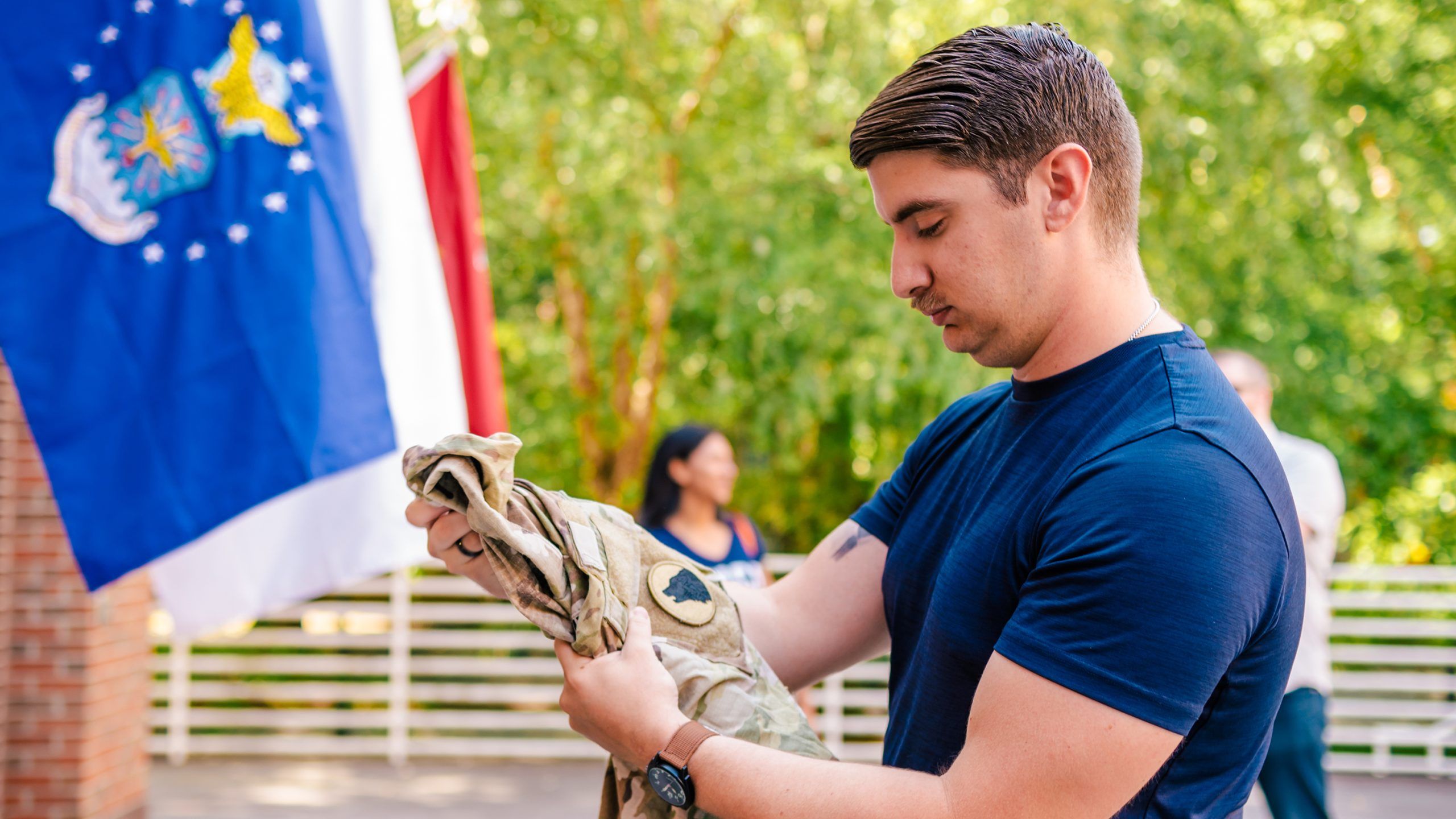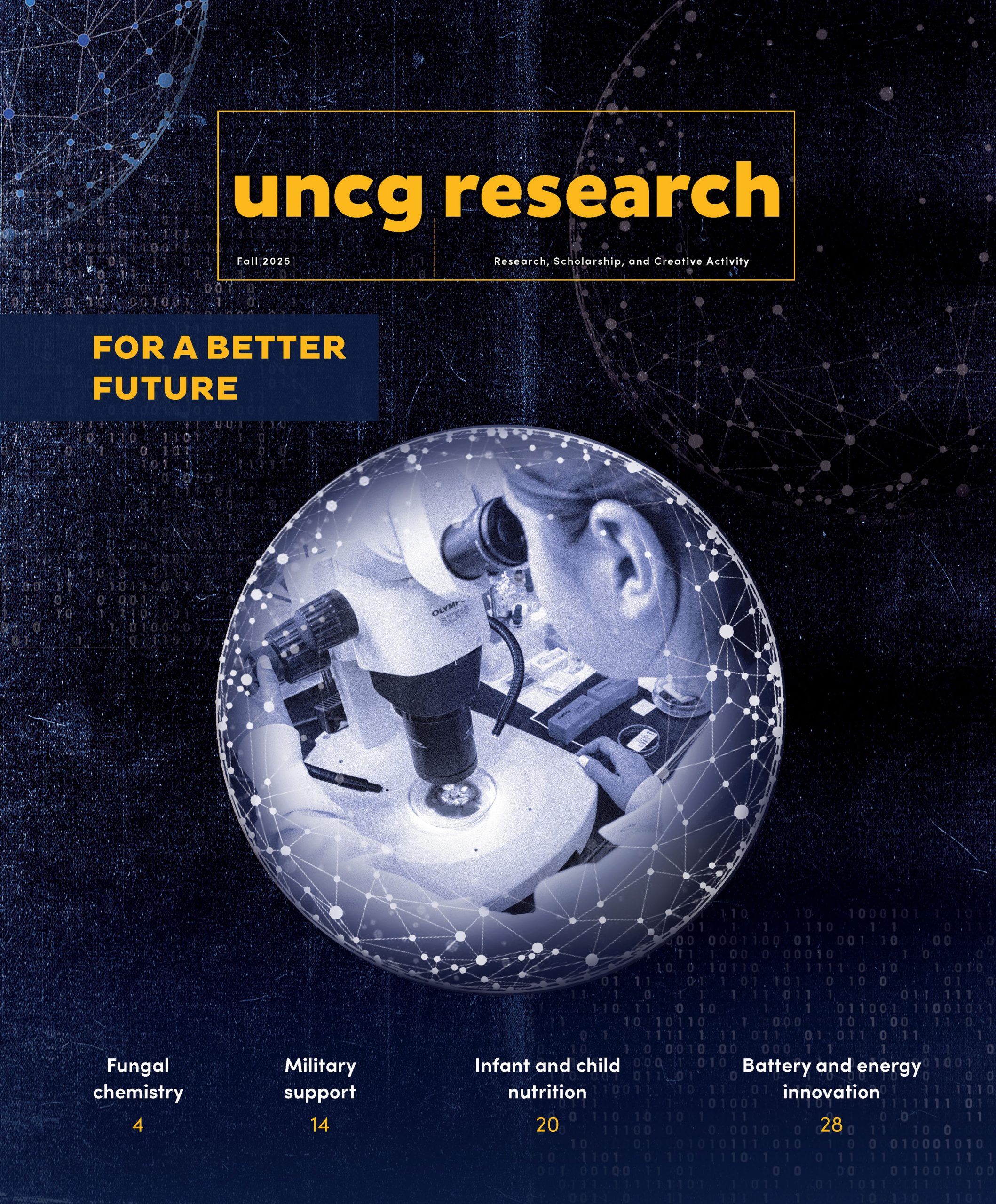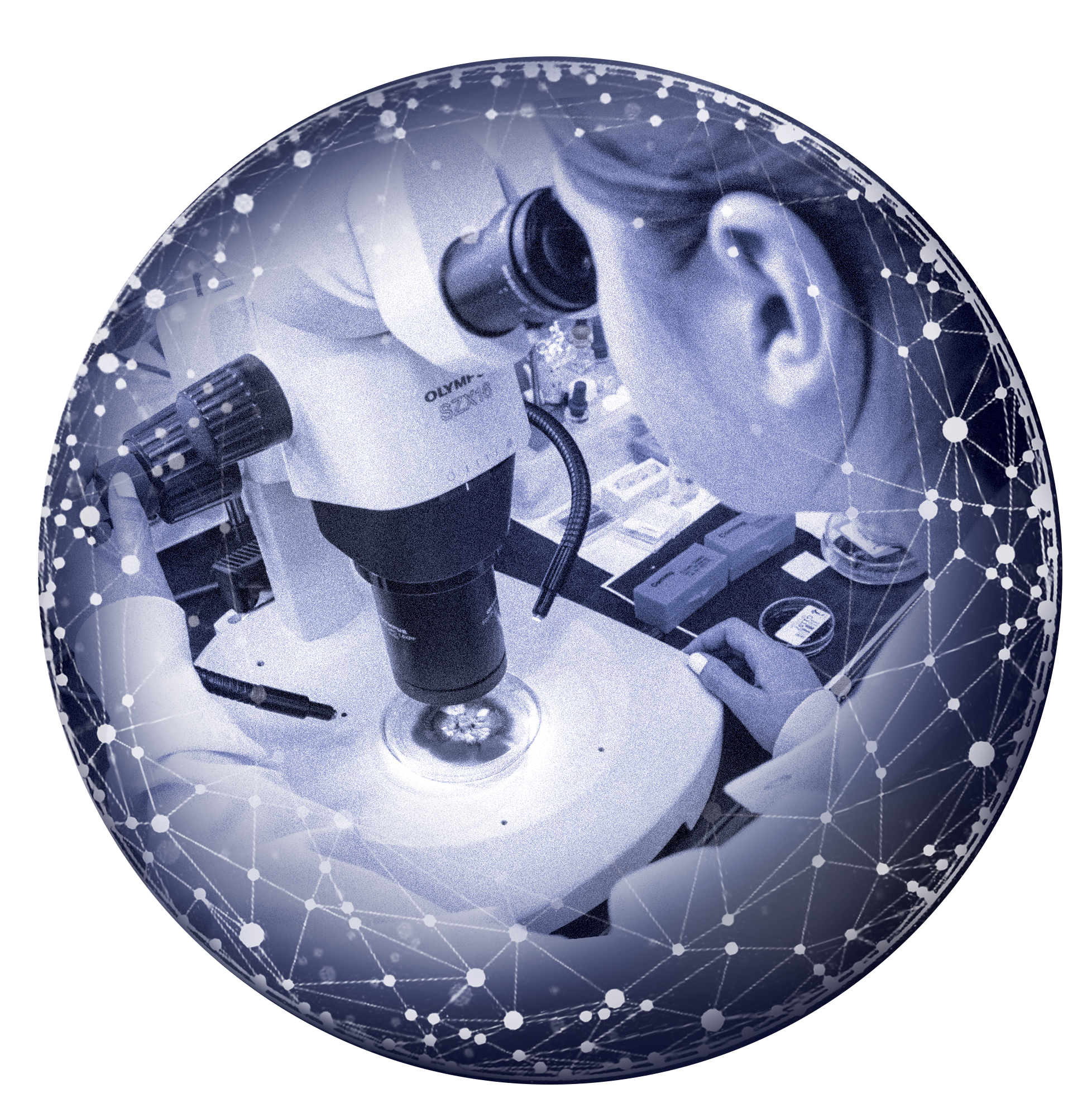
2025 issue
FOR A BETTER FUTURE

2025 issue
FOR A BETTER FUTURE
Nature’s Tiny Chemists
Dr. Nick Oberlies’ lab searches for cancer-fighting compounds in fungi, delves into the chemistry of medicinal herbs, and explores how fungal chemistry could make electricity cheaper and safer.
It’s not often you get a surprise phone call from one of your heroes. But that’s what happened to Dr. Nicholas Oberlies in 1998.
The call was from Dr. Monroe Wall, a scientist at the Research Triangle Institute in North Carolina. Wall and collaborator Dr. Mansukh Wani discovered taxol, a widely used cancer drug, in the bark of the Pacific yew tree.
“They are like superheroes to me,” Oberlies says. “If you talk to an oncologist, they will say that taxol changed the world.”
It’s the kind of work Oberlies had long dreamed of doing. That call brought him to the Research Triangle of North Carolina to work as Wall’s protégé and eventually to UNCG.
Now, Oberlies, assisted by dozens of students and researchers across the state, nation, and globe, is working on potentially world-changing projects.
These range from searching for new cancer medicines to discovering how fungi-based chemistry could transform how electricity is generated, transmitted, and stored.
“The big idea in my research group is to understand the chemistry of nature,” Oberlies says.
“People have the conception that nature is static – like a tree alone in the woods. But really, nature is sending out and receiving chemical signals all the time.”
The Right Idea
Roll Call
UNCG is calling up its strengths in research and education to mobilize a new unit benefiting members of the military – from the battlefield to the classroom.
iCOMMAND, or the Institute for the Convergence of Optimized Methods for Military Advances and National Defense, focuses on four strategic areas: protection through innovative material and design, holistic performance through health and wellness, advancing biotechnology, and education and workforce development.
Vice Chancellor for Research and Engagement Sherine Obare says the new UNCG institute will leverage existing research and relationships and forge new connections to ensure members of the military, and their families, thrive in any environment and in every phase of their lives.
“We want to enhance North Carolina’s position as a national leader in innovation in materials science and technology to support and protect service members.”
The Word’s Out
What’s for Dinner, Baby?
UNCG researchers bring evidence-based strategies to support parents and babies, locally and globally.
How and what infants eat has profound and long-lasting effects on their health and well-being – including obesity rates and how vulnerable they are to illness and chronic health conditions as they grow older.
Around the world, an estimated 37 million children are obese, as well as a growing share of adolescents and adults.
But many questions remain about the pathways through which feeding and nutrition influence child development. UNCG researchers are leveraging cross-disciplinary expertise to answer those questions and develop evidence-based strategies to improve maternal and child wellbeing.
“Infancy is a very important life stage. It’s a highly developmental phase, and it’s a phase of immense opportunities. At the same time, any vulnerabilities during this phase can have a lifelong impact.”
Research Excellence Awards
Lighting the Way
UNCG’s BRIGHT Institute aims to fuel NC’s energy future.
One of UNCG’s newest institutes will power a growing cluster of research, education, and workforce training initiatives to secure North Carolina’s place as a center for advanced battery and energy technologies.
The BRIGHT Institute will bring together four currents of activity: A portfolio of next-generation energy research efforts at UNCG along with complementary efforts at other North Carolina universities. North Carolina’s burgeoning private sector “Battery Belt,” anchored by the $14 billion Toyota battery plant set to open this year in the Triad. Extensive local deposits of critical minerals, such as lithium and phosphorus. Surging demand for workers who are educated and trained in the skills needed for electric vehicle battery plants and other innovative employers.
BRIGHT will be a hub for more than 100 industry, government, and nonprofit partnerships … continue reading
“This will significantly benefit North Carolina economically and socially,” says UNCG Chancellor Franklin D. Gilliam, Jr.
Meet our Student Scholars
From the Vice Chancellor
One of the great privileges of my role is getting a first look at this magazine before it reaches our broader community. This issue inspired me with its stories of groundbreaking insights and tangible progress in human wellbeing. On campus and across our state, our faculty and students are creating new knowledge and putting that into action through innovative projects and programs.
I believe you’ll be just as inspired. UNCG is at a pivotal moment as we work to elevate our research enterprise to new heights. Our 2025–2030 Strategic Plan, adopted earlier this year, includes an ambitious and transformative goal: to achieve R1 Carnegie classification, the highest level of research excellence.
Published by the Division of Research and Engagement at UNCG
Vice Chancellor for Research and Engagement
Dr. Sherine O. Obare
Vice Chancellor for Strategic Communications
Diana Lawrence
Editor-in-Chief
Sangeetha Shivaji
Contributing Editor
Mark Tosczak
Associate Editor
Nikkola Brown
Art Director
Jaysen Buterin
Graphic Designers
Jaysen Buterin, De’Andre Gilliard, Hunter Pham
Photography Director
Sean Norona
Contributing Photography
Chris English, Martin Kane, David Lee Row
Contributing Authors
Robin Sutton Anders, Brian Clarey, Rachel Damiani, Chad Fogleman, Terri Relos, Dee Shore, Mark Tosczak, Alice Touchette, Elizabeth Witherspoon
Web Editor
Sangeetha Shivaji
Site Manager
Katy Molony
Distribution Manager
Haley Childers
Proofing
Nikkola Brown, Sierra Collins, Leah Jarvis
